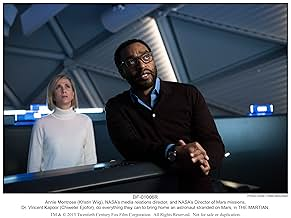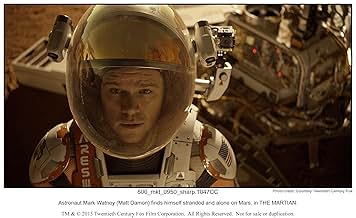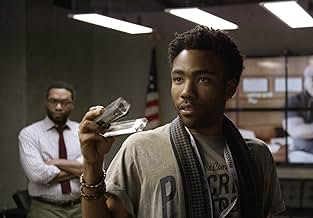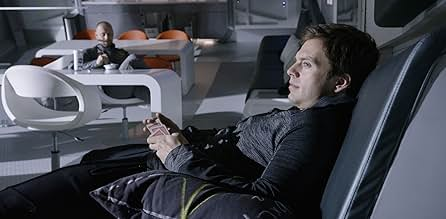The Martian: A Gripping Space Drama of Survival with Potatoes and Duct Tape
A thrilling and realistic space drama about surviving on Mars with potatoes and duct tape.
During a hasty evacuation from Mars due to a sandstorm, the NASA expedition leaves botanist Mark Watney (Matt Damon) behind. The astronauts believe he’s dead, but in reality, a detached antenna merely pierced Mark’s bio-monitor, knocking him unconscious. Upon regaining consciousness, Watney realizes he’s alone on the planet, no one knows he’s alive, and the next expedition won’t arrive for four years, landing in a completely different location. With Earth supplies insufficient for such a period, Mark must grow his own food and figure out how to contact NASA.

Ridley Scott’s new blockbuster, based on the book by programmer and aspiring writer Andy Weir, belongs to the rare breed of space films that can’t be called “science fiction.” Weir’s novel is written with utmost respect for science and engineering, featuring no aliens, time portals, or far-fetched technologies like lightsabers and hyperspace jumps. According to the author, the only implausible element in “The Martian” is the opening sandstorm, too intense for actual Martian weather (Weir couldn’t devise a better explanation for the emergency evacuation). Otherwise, the book realistically models Watney’s survival and rescue, so much so that NASA bosses recommend it to their subordinates planning Mars expeditions.

Scientific Accuracy vs. Dramatic Tension
The plausibility and scientific accuracy of Scott’s film are both its strength and weakness. Like “Apollo 13,” “The Martian” is a treat for viewers who love watching talented people solve complex engineering problems and survive in nightmarish conditions. Initially, Mark displays remarkable resourcefulness, but once Earth learns of his survival, a whole battalion of characters starts racking their brains – American scientists, engineers, and mission control staff, Watney’s expedition crewmates, and even Chinese “comrades” who, despite not being involved in Mars missions, can’t help when a remarkable person’s fate is at stake.

The “Martian” landscapes were filmed in the Wadi Rum desert valley in Jordan. Its red mountains and sand often stand in for Mars in Hollywood films.
A Celebration of Intellect and Ingenuity
Apart from the NASA publicist played by Kristen Wiig (necessary for the script to have someone ask silly questions and receive smart answers), all these characters are so gifted and inventive that it’s heartwarming to watch them work towards a common goal. “The Martian” expects inquisitiveness and attention from viewers but doesn’t require advanced technical education, as the film clearly explains everything that might confuse the audience. Scott’s film is one of those rare Hollywood productions that simultaneously entertains, educates, and celebrates knowledge and intellect, rather than trigger-happy skills. Those who worship duct tape will surely dedicate a special shelf in their home shrine to the film’s disc. Who knew duct tape was so useful for repairs in space!

Lack of Conflict and Emotional Depth
On the other hand, “The Martian” will disappoint those who enjoy stories of human conflict and spiritual growth. All the characters work as a team, and the only conflict in “The Martian” is the clash between good and better (the NASA director doesn’t want to risk astronauts’ lives, while the flight director believes the astronauts should make that decision). Watney, in turn, is such an unyielding hero that there’s no sense that Mars can break him, no matter how hard it tries. Even in the scariest moments, Mark only expresses his displeasure with a few curses and lively jokes, continuing to survive without succumbing to despair for a second. Remember the “Cast Away” hero’s arguments with a volleyball, highlighting the “Robinson’s” longing and loneliness? Watney doesn’t need such psychological crutches, and loneliness doesn’t drive him crazy, even though he’s the loneliest person in the Universe. Of course, a cosmonaut is supposed to be a superman, and Damon’s Gagarin-like charm as Watney is quite fitting (as is the character’s wit). However, the character’s hyper-competence turns the feat almost into routine, and the narrative’s drama clearly suffers.
The potato field in the film was real. Ridley Scott hired an agronomist to plant and grow potatoes in a pavilion with a Martian base set.
Pacing and Tension
The film also suffers from the fact that the dangers threatening Watney are usually described as: “In a few months, the hero may die of starvation.” The film needs “long” problems so that the characters have enough time to solve them, but blockbuster cinema demands immediacy. In “The Martian,” you can count on one hand the situations where the characters must act instantly. Note, “characters,” not just Watney. He only has three such situations – at the beginning, in the middle, and at the end of the film. This isn’t quite the plot tension and drive you expect from a space blockbuster. “Apollo 13” was more dynamic and dramatic. However, the climax of “The Martian” is much more powerful than the ending of Ron Howard’s film.
Stellar Cast
The casting also deserves praise. When such a film, despite its special effects, is 80% dialogue-driven, it’s crucial that charismatic performers say smart things, and “The Martian” has them in droves. It’s easier to say who isn’t played by stars (if not of Hollywood, then of television or foreign cinema) than to list all the notable performers. Yes, they don’t play to their full potential, as the film only grants that right to Damon, and their fans may be disappointed by what Sean Bean or Mackenzie Davis from the “Halt and Catch Fire” series do in the film. But in the context of “The Martian,” these sacrifices are justified, and the film would fall apart if everyone tried to steal the spotlight.
A Missed Opportunity
Finally, we must mention what disappointed us the most. The film never mentions Russian cosmonautics! Of course, he who pays the piper calls the tune, and when making a film, not organizing a real expedition to Mars, Hollywood and their Chinese partners were entitled to arrange a private party without the royal Mission Control Center. But not a single mention of the main space power is too much! Among the six astronauts of Watney’s expedition, there are five Americans and one German. Why couldn’t they replace one of the Americans with a Russian? It works in science fiction – remember “Star Trek” – but what about realistic space cinema? Or did the Chinese insist on exclusivity? But the German somehow got into the film…